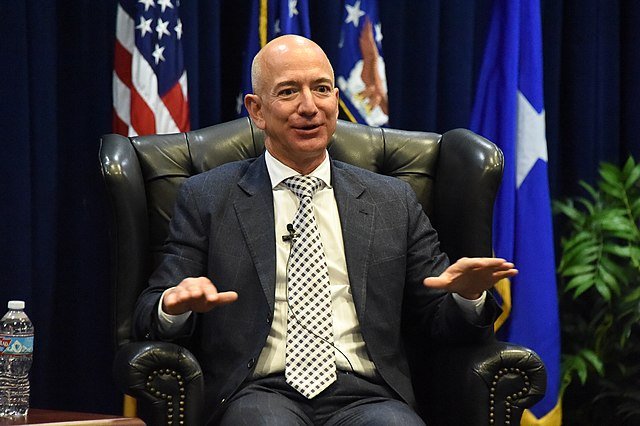Washington Post suffers foolish, self-inflicted damage
/UPDATE (Oct. 28, 3:30 p.m.): NPR's David Folkenflik reports The Post has lost 200,000 subscribers (8%) as of midday today. That’s remarkably high.
UPDATE (Oct. 28, 9 p.m.): In a commentary published by The Post tonight, Jeff Bezos said he decided to end presidential candidate endorsements to avoid the appearance of bias and to help improve public trust in media, not because of other business considerations. He wrote that he wished he had made the decision sooner.
One of my more formative experiences as a college journalist was getting to visit The Washington Post newsroom, meeting legendary editor Ben Bradlee of Watergate fame, and attending the Page 1A budget meeting (where I got to hear Bradlee curse, which was really formative).
So it was with some sadness that I found myself on The Post’s website Friday, contemplating canceling my digital subscription.
But the publication had angered a lot of readers and its own journalists earlier in the day by announcing it would not endorse anyone in the current presidential race. According to The New York Times, The Post’s editorial board had written an endorsement of Kamala Harris, then billionaire owner Jeff Bezos killed it. CNN reported Saturday morning that “thousands” of subscribers had cancelled. (Perspective: The Post has about 2.6 million print and digital subscribers.) One longtime columnist resigned. Many other Post journalists went public with their fury. Former editor Martin Baron savaged his old company.
Publisher Will Lewis claimed The Post – 11 days before the election – was simply returning to a tradition of not endorsing presidential candidates and that it wasn’t The Post’s place to tell readers how to vote. But everyone’s highly logical suspicion was that Bezos did this to protect his many business interests – Amazon, Blue Origin – from the wrath and regulatory power of Donald Trump, were he to regain the presidency.
A rising number of news organizations are indeed ending presidential endorsements, and more alarmingly, the much more useful endorsements at the state and local levels. And the growing number of nonprofit news websites are not allowed to endorse candidates. There’s an even bigger picture here: The institutional voices of news organizations that speak to all kinds of issues are disappearing. Fewer organizations have editorial boards to express the views of the organization, instead putting opinion writing almost exclusively into the hands of individual staff columnists and guest commentators. (My former organization, The Alabama Media Group, is one of many examples of this.)
After Friday’s announcement by The Post, Scott Buttram, publisher of The Trussville Tribune, wrote on X that news media endorsements of presidential candidates are “self-indulgent and insulting.” Valid point. If editorial boards think voters need their advice to know how to vote for president, they are mistaken. Research indicates newspaper endorsements in national races don’t move the needle much.
I nonetheless believe Jeff Bezos blundered.
JEFF BEZOS
Journalism is pointless if people believe it’s timid. Bezos, who according to Baron’s book has stood up to Trump many times, might not meddle in negative Trump commentary or news stories ever again. But now the public and even his own newsroom will always suspect that he might have. Or that his top editors will because, well, they got the message. That’s devastating to The Post. Making matters worse for journalism is that the billionaire owner of the LA Times just did the same thing. (In fairness to The Post I should point out that its opinion staff immediately published several pieces critical of the no-endorsement decision.)
Bezos deserves criticism for another reason, too. If ever there was a year not to abandon courage and principle, it’s this one. Faced with the most potentially destructive major-party candidate maybe ever, the country needs its institutions to show some resilience. That ought to be a journalism specialty, and one that can’t get shaken by politics or economics. Take a stand, because once it’s too late, I can’t think of anything worse than being rightly called a coward who helped let it happen.
Oh, I didn’t cancel my Post subscription after all, so maybe I’m a coward, too. I decided that would only hurt the journalists who are doing good and necessary work. Maybe I’ll quit Amazon. In the meantime, I’m hoping top editors, publishers and owners will have the fortitude not to let Donald Trump spook them.


